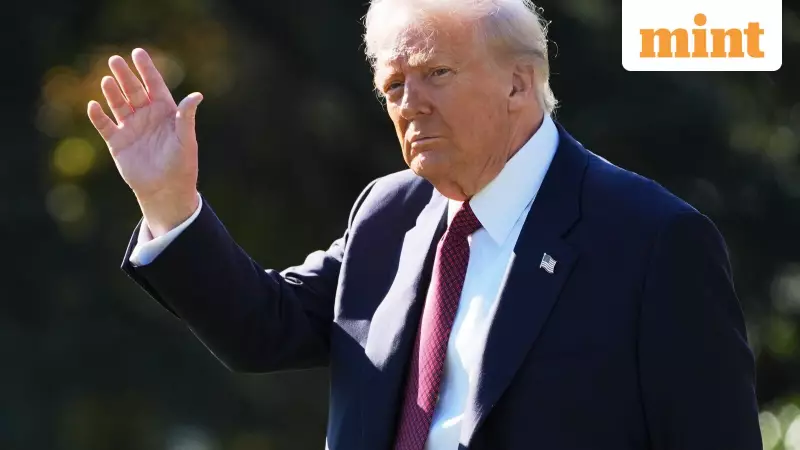
In a stunning political development that could fundamentally alter the American legislative process, former President Donald Trump has called for the complete elimination of the Senate filibuster following disappointing Republican midterm election results.
The Controversial Proposal
The former president took to his Truth Social platform with a bold declaration that has sent shockwaves through political circles. "REPUBLICANS MUST ELIMINATE THE FILIBUSTER IN THE SENATE!!!" Trump wrote in his characteristic all-caps style, framing the parliamentary procedure as the primary obstacle to Republican legislative success.
Midterm Disappointments Spark Radical Response
The call comes after what many Republicans considered underwhelming performance in the midterm elections, where the party failed to secure the decisive victory that historical patterns and polling had suggested. Trump specifically pointed to the Senate's failure to pass key Republican priorities as justification for his dramatic proposal.
"The reason we are not getting our policies approved is because of the filibuster," Trump asserted, suggesting that without this procedural hurdle, Republicans could have pushed through their entire agenda despite holding only narrow majorities.
What Ending the Filibuster Would Mean
The Senate filibuster, a longstanding tradition requiring 60 votes to advance most legislation, has been:
- A check on majority power for generations
- The subject of increasing debate in recent years
- Previously modified for judicial and executive branch nominations
- Viewed by many as essential to bipartisan compromise
Republican Leadership's Stance
This proposal puts Trump directly at odds with Senate Minority Leader Mitch McConnell, who has consistently defended the filibuster as a crucial mechanism protecting minority rights and promoting stability in legislation. The tension highlights the ongoing power struggle within the Republican Party between establishment figures and the Trump-aligned wing.
The Bigger Political Picture
Trump's position represents a significant escalation in the ongoing debate about Senate rules and comes as:
- Republicans assess what went wrong in the midterms
- The party debates its direction heading into the 2024 presidential election
- Democratic lawmakers had previously considered similar filibuster changes
- Institutional norms face increasing pressure from both political flanks
The former president's call to action signals a potential new front in the battle over how American democracy functions, with consequences that could extend far beyond any single election cycle.





